Are you constantly made to feel like you’re a bit of an outsider in your own family? Check out the signs of being the black sheep in the family. Do you relate?
Family is supposed to be a safe space for a person to be themselves but what if you feel misunderstood, or even unwanted?
Often, during family events or get-togethers, you feel that you “don’t belong” or “fit in”. You aren’t invited to events, or get invited last minute but are ignored or singled out.
Being a black sheep in the family has less to do with you and more to do with the context of your family. So take a look at what it means to be one.
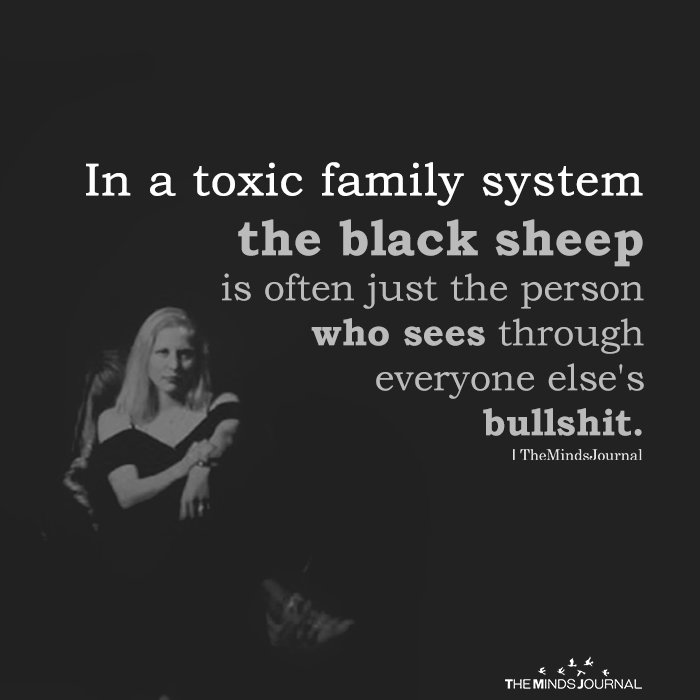
What Is A Black Sheep In The Family?
Being a black sheep in the family means that you don’t fit in with other family members either because of differences in personality, interests, values, beliefs, or behaviors. This can lead to feelings of rejection, isolation, and frustration.
Take a look at the ten signs and symptoms of a black sheep in the family. Are you one of them?
Here Are 10 Signs You Are The Black Sheep Of Your Family
1. You challenge and question everything
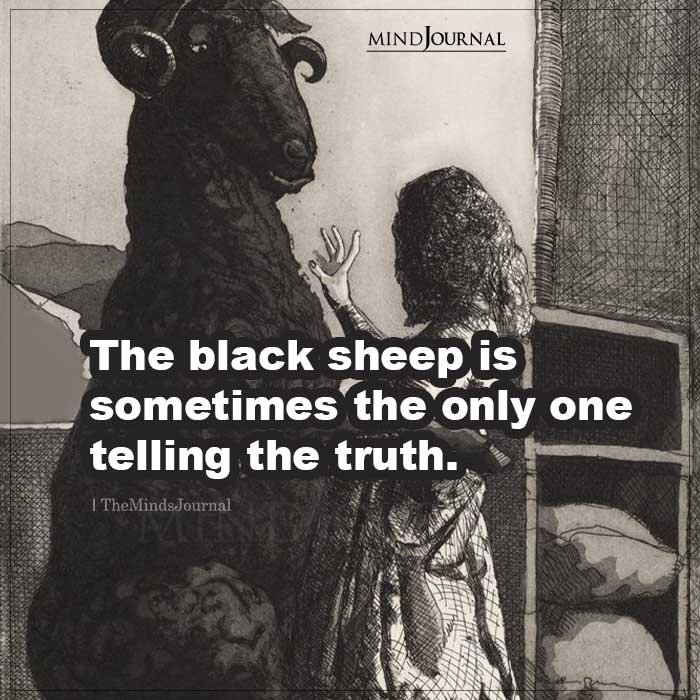
You’ve always been inquisitive and an empath who can pick up on even the smallest shift in behavior or body language. You’re a deep thinker who tries to interpret what you observe.
You have a natural curiosity about how the world actually works, so you ask a ton of questions. This occasionally makes you unpopular in your family.
2. You may have given up your religion.
You are most definitely the family’s “black sheep” if you come from a religious background and chose to reject it. This is undoubtedly a problematic state.
3. You’re not close to any family member
You could well be the odd one out in your family if you struggle to maintain positive, tight relationships with them.
Related: 7 Tips On How To Deal With Fake People In Our Lives
4. You took an unusual career path
Your family is full of physicians and attorneys, and you opted to forego college to pursue your dream of being an actress. This is the topic of conversation for the entire household.
People are baffled as to why you took such a decision. It doesn’t seem very sensible to them, so it’s brought up at every family meeting in some manner.
5. You don’t have anything in common
You’re the only one in your athletic family who can’t kick a ball. The sole introvert in a household full of extroverts. Every damn time, you find yourself being different from the rest of your family.
6. You’re a horror show in a family full of saints
Your family is filled with well-dressed souls. What about you? You’re in complete shambles. As much as you despise admitting it, you’re the family’s disappointment most of the time. You get the feeling that every single failure stands out from your entire family’s achievement, and it stinks big time.
7. You’re incredibly successful
On the other hand, your family is full of shambles, and you are a saint, a do-gooder, top-of-the-class, picture-perfect. Your family is envious of your joy and success. They avoid you unless they need you for anything. If that happens, they will be all over you, buttering you up and making requests.
8. You’re usually the last person invited
If there is a family outing, you are the last to be invited… if at all. Your family is open about how they feel about you, but they strive to make it appear to others that they genuinely care about you. Outsiders, on the other hand, may sense if your family rejects you.
9. Your family has low expectations of you
They use your individuality against you. Be prepared for your siblings to gossip about you. Your parents will frequently exclude you from their good fortune and favor, instead bestowing it on another child, even if you need it more, just as much, or that sibling does not deserve the assistance.
10. You look for role models beyond your family
This might take the shape of mentors, professors, or advisors who sincerely care about your perspective or worldview. They might also be celebrities you adore who share your rebellious nature. You’re seeking someone who can point you in the right direction.
Related: Why Family Scapegoats Become Lifelong Victims?
How To Deal With Black Sheep In The Family?
Here are some tips for coping and dealing with black sheep in the family to help you understand your family and feel better.
1. Embrace your individuality: Celebrate your unique qualities and interests, and don’t be afraid to be yourself.
2. Build a support network: Surround yourself with friends, mentors, or other people who accept and appreciate you for who you are.
3. Communicate with your family: Try to have open and honest conversations with your family members to express your feelings and understand their perspectives.
4. Seek therapy: If you’re struggling with feelings of rejection or low self-esteem, consider seeking the help of a therapist for support and guidance.
Being the black sheep in your family can be a challenging experience, but it’s important to remember that you are still a valuable and important member. Try to find people who support and understand you.
The best part of being a black sheep in the family is that you are unapologetically YOU! So, celebrate it, and don’t let the opinions of others define your self-worth. Remember that it’s okay to be different.
Related: People Take Advantage Of You: 9 Ways People Exploit You
Are you the black sheep of the family? If you relate to this article on the signs of black sheep in the family, share your thoughts in the comments.
Frequently Asked Questions (FAQs)
What is the difference between the black sheep and the golden child?
A golden child is one with beauty and talent, whereas the black sheep is opposite who the parent sees as a threat and an embarrassment.
Is there anything good about being the black sheep in your family?
The best part of being a black sheep in the family is that you are unapologetically you. So, celebrate it, and don’t let the opinions of others define your self-worth.
How does being a black sheep affect your mental health?
Being a black sheep affect your mental health in many ways like it can lead to feelings of rejection, isolation, and frustration.

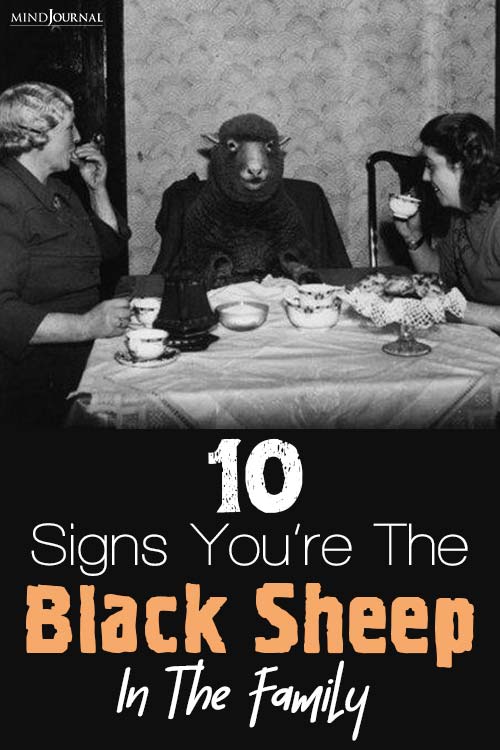
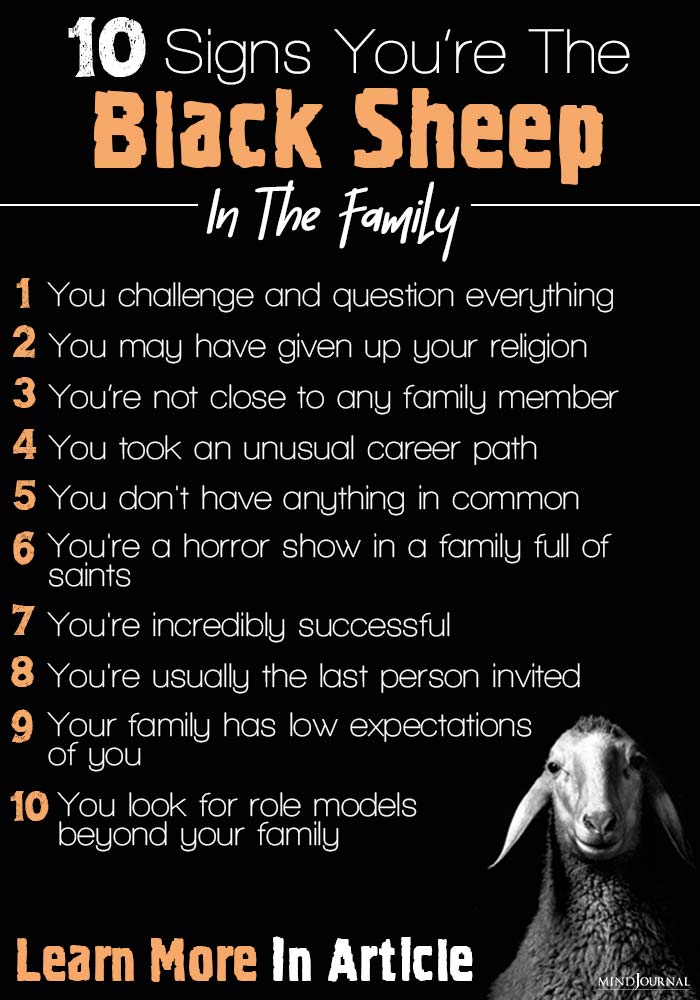


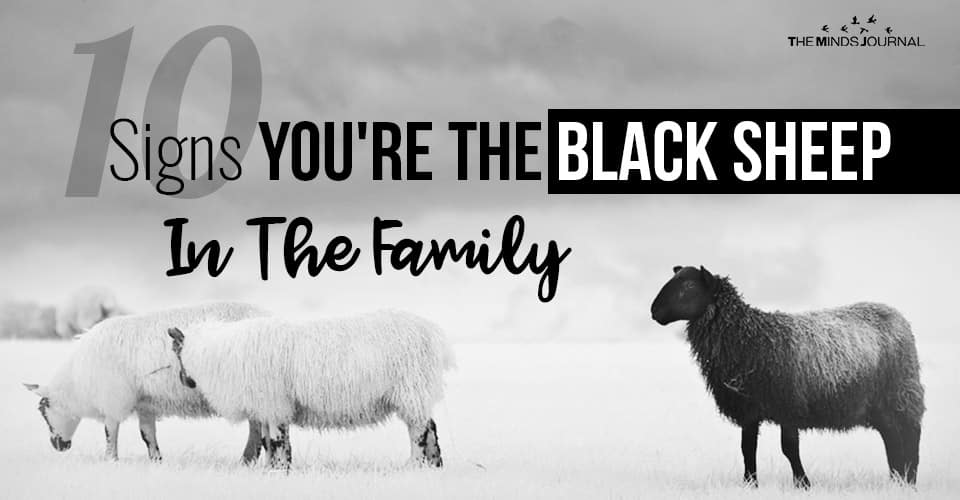







Leave a Reply